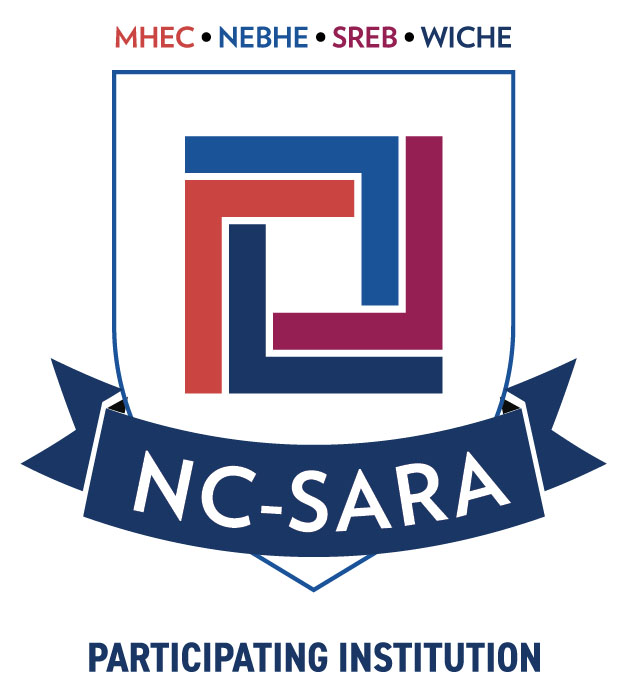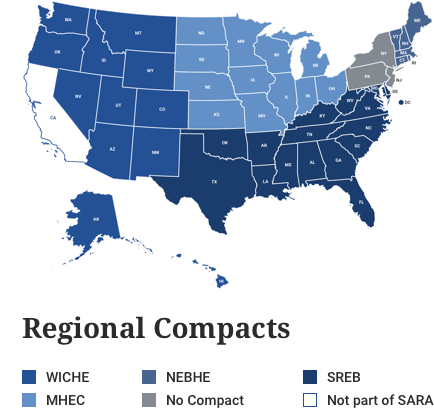
Planetarium Show: The Little Star That Could
JJC's online classes take place on the platform iCampus, powered by Canvas. This state-of-the-art virtual classroom technology allows students to:
Even though this software is used primarily for online classes, many on campus classes may require the use of iCampus. Please check with your professor if you have any questions.
Please reach out to us via email at iCampusSupport@jjc.edu or call us at (815) 280-2481.
If you need help using iCampus for your class, check out our step-by-step guide below.
Online students can expect:
View Our Course Catalog
View Courses With Online/Hybrid Formats During a Typical Year
All students enrolled in online or hybrid courses for the first time must complete the Introduction to Online Learning in iCampus. This orientation helps students learn how to use iCampus before classes begin. To get started, follow the steps below:
Only after completing the orientation will students be able to fully participate in course discussions, assignments and exams.
Registration processes and financial aid eligibility are the same regardless of course format.
Register for Classes Now
Learn More About Financial Aid
Tuition charges are at in-district rates for all online courses, while hybrid courses are billed in the same manner as an on campus, face-to-face class. Course fees vary by format.
Want to transfer your online class to another school? Please note that JJC is accredited by the Higher Learning Commission. Students should check with transfer institutions regarding transfer eligibility.
JJC offers online, hybrid and on campus (or face-to-face) classes.
Students can expect to receive the same education - and the same attention from instructors - from an online course as they would receive from an on campus or hybrid course. The difference is that everything related to the class will be performed online via iCampus.
JJC online courses follow two formats: Asynchronous and Synchronous.
Please note that during a typical year, students enrolled in online courses may be asked to visit campus to complete exams or tests. This varies by class.
Hybrid classes are taught partially online and partially in a face-to-face, on campus setting. Hybrid courses reduce the amount of time spent on campus by moving lectures, course work and other activities online. Hybrid courses deliver up to 74 percent of course instruction online with the remainder occurring on campus. Students can expect to receive the same amount of attention from a hybrid course as they would from an online or on campus course.
Hyflex classes combine several instructional methods into one section. Students register for a single session and have the opportunity to attend class in several different ways. Typically students can choose from face-to-face, online synchronously and online asynchronously. It is each instructor's discretion to allow (or not) students to change formats from class session to class session.
These courses are held on the Main, City Center or Romeoville Campuses as well as at our education centers, high schools and other locations in our district. These classes may require students to use iCampus for course information, grades and more.
Did you know that there are many JJC degrees and certificates that you can earn entirely online?
Check Out our All-Online Programs
Please note that some programs may require hybrid courses.
Unsure about taking an online or hybrid course? Contact your advisor/counselor or iCampus with any questions.
iCampus provides all JJC students with access to SmarterMeasure, a free tool designed to aid you in determining whether online courses are a good fit.
SmarterMeasure measures learner readiness and whether or not online classes would be a good fit for you. Upon completion of SmarterMeasure, you will receive a score report which not only helps you understand your strengths and opportunities for improvement, but also provides resources to help you succeed.
To access SmarterMeasure, use the following information:
SmarterMeasure Information and Characteristics of Successful Online Students
Students who wish to enroll in online and hybrid courses or programs at JJC follow the same procedures as face-to-face students.
The application, financial aid, placement testing, and other processes are the same.
The first time one registers for an online or hybrid course they must complete the mandatory "Introduction to Online Learning" orientation. This orientation must be completed prior to receiving full access to your online and hybrid course(s).
JJC's online and hybrid courses are not self-paced. Assignments, quizzes, discussions, presentations, and other course requirements are detailed in the syllabus and must be completed by their assigned due dates. The academic expectations of online and hybrid courses at the same as with face-to-face courses.
Students may contract their instructor by e-mail with questions regarding specific course content, class procedures, and if applicable, on campus meeting information. Courses are usually not made available until three (3) days before the course start date.
Students enrolled in an online or hybrid course will need an internet connected device that is capable of running a modern web browser or the Canvas app. Textbooks and other materials can be rented or purchased through the JJC bookstore. Technical support for students is provided 24/7. Visit the Current Students page for additional information.
Some online courses require proctored exams. When registering for your online class, these classes will be noted with the following in the Meeting Information section: "ONLINE CLASS WITH VISITS; Campus visits required for exams."
Students can complete these exams the following ways:
Option 1: Proctored exams can be completed in Testing Services on the Main Campus, Romeoville Campus or at the City Center Campus. This option is free for JJC students. For additional information on this option please visit Testing Services.
Option 2: Some courses use an online proctoring services called Examity. Students are charged a fee for testing with Examity that will vary depending on the length of the exam. Students should discuss online proctoring options with course faculty. Each faculty member decides whether or not this option is available in a course.
Option 3: Testing at another testing location may be available. Students should visit with faculty about possible options for testing at other locations.

Joliet Junior College has been approved to participate in the National Council for State Authorization Reciprocity Agreements.
NC-SARA is a voluntary, regional approach to state oversight of postsecondary distance education.
Our membership allows out of state students from fellow SARA participating states to complete online and hybrid course work and programs at the college. The highlighted states below are participating states. Up to date information is always available on the NC-SARA website. Out of state students should familiarize themselves with JJC's Student Complaint Procedures (see section below).

If you choose an academic program that involves earning a license (such as nursing or veterinary medical technology) and you either live out of state or plan to live out of state after graduating from JJC, this may affect your ability to practice in that state.
JJC promotes an open educational environment, rich in values and designed to protect the integrity of teaching and learning. In that spirit, the college encourages all students to first direct their complaints and concerns to the faculty, staff, or administrator specifically involved.
The college believes many complaints can be resolved through an open, honest dialogue between the persons involved. In cases where that may not be possible, the JJC Student Complaint Procedure can assist in facilitating a resolution. Other than grade appeal or claim of sexual discrimination, harassment, or misconduct, a complaint that challenges the decisions or actions of college personnel will be considered under this procedure. Information can be obtained through the Dean of Students office. Visit Student Complaint Procedure for general JJC complaint information.
If you are an Out of State student and have a complaint that you feel has not been resolved through the Student Complaint Procedures described above, you may file a complaint with the state in which you reside. In compliance with the Federal Department of Education regulations, JJC provides the following list of State Agencies with contact information: Student Complaint Information by State. You may also contact the Illinois Community College Board when seeking a resolution.
Quality Matters (QM) is a "nationally recognized, faculty-centered, peer review process designed to certify the quality of online courses and online components. Colleges and universities across and beyond the U.S. use the tools in developing, maintaining and reviewing their online courses and in training their faculty" (Quality Matters, 2015). A QM course review is focused on course design as opposed to course delivery. The QM program additionally provides for professional development opportunities and conferences. Further information on the Course Review Process is available on the Quality Matters Website.
All faculty teaching online or hybrid courses for JJC complete the "Applying the Quality Matters Rubric" (APPQMR) workshop within their first year of teaching.
The following JJC courses have been recognized as meeting standards.
| Course Name | Catalog Number | Faculty Developer | Date Recognized |
|---|---|---|---|
| Income Tax Accounting | ACCY:107 | Tara Laken | July 20, 2023 |
| Microsoft Office | CIS:126 | Ram Raghuraman | Mar. 31, 2023 |
| Computer Info. Systems Fund. | CIS:122 | Ram Raghuraman | Feb. 5, 2023 |
| Environmental Biology | BIO:146 | Andy Neil | Jan. 19, 2023 |
| Introduction to Visual Arts | ART:109 | Margie Sula | July 14, 2022 |
| Intro/Ren/Baroque | ART:116 | Megan Callan | Feb. 14, 2022 |
| Intro/Ren/Modern | ART:119 | Megan Callan | Aug. 25, 2022 |
| Intro to Discrete Mathematics | MATH:137 | Heidi Lyne | Jan. 10, 2022 |
| Applied Food Sanitation | CA:106 | Kenneth Thompson and Andy Chlebana | Oct. 29, 2021 |
| Culinary Supervision | CA:213 | Kathryn Sopko | Feb, 23, 2023 |
| Intermediate Algebra | MATH:098 | Laura Egner | Sept. 30, 2021 |
| Elementary Algebra | MATH:094 | Laura Egner | Sept. 17, 2021 |
| College Arithmetic | MATH:090 | Laura Egner | Sept. 30, 2021 |
| History of Art in Architecture | ART:223 | Meaghan Callan | Oct. 6, 2021 |
| Cost Accounting | ACCY:209 | Tara Laken | May 11, 2021 |
| Elementary Statistics | MATH:128 | Heidi Lyne and Michael Sullivan | July 21, 2020 |
| Accounting I (Hybrid) | ACCY:101 | Tara Laken | Dec. 3, 2018 |
| Accounting II (Hybrid) | ACCY:102 | Tara Laken | Nov. 11, 2018 |
| Pharmacology and the Nursing Practice | NURS:163 | Kathy Wolz and Janet Sullivan-Stromberg | July 30, 2018 |
| Principles of Speech | COMM:101 | Laura Marqua | Nov. 15, 2021 |
| Principles of Speech (Hybrid) | COMM:101 SPCH:101 | Laura Marqua | Oct. 18, 2018 (Recertification) and May 14, 2017 |
| Accounting II | ACCY:102 | Tara Laken | April 28, 2017 |
| Principles of Marketing | MKTG:101 | Nour Al Naber | Jan. 26, 2017 |
| Social Psychology | PSYC:208 | Christopher Ostwinkle | Oct. 6, 2016 |
| Accounting I | ACCY:101 | Tara Laken | Nov. 1, 2021 (Recertification) Oct. 25, 2016 |
| Principles of Speech | SPCH:101 | Lori Schahrer | Aug. 11th, 2021 (Recertification) and June 20, 2016 |
| American National Government | PSCI:101 | Julie Havemann | Sept. 9th, 2021 (Recertification) and Feb. 15, 2016 |

